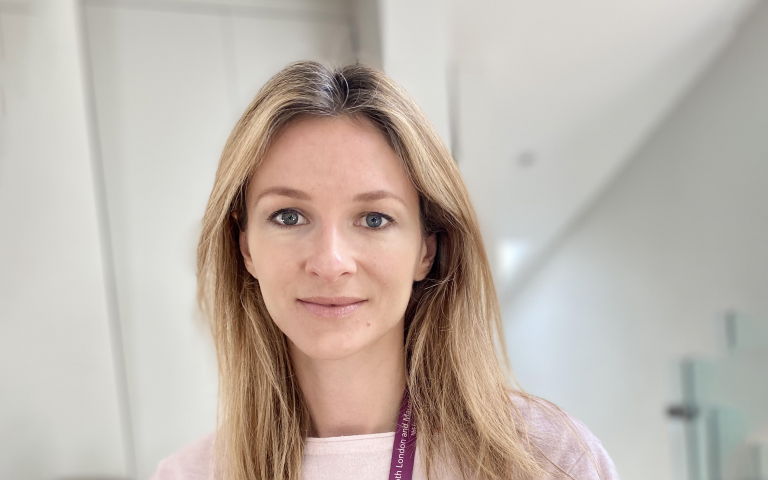UCL Brain Science’s student partners with BioStress Lab on world-first study of workplace stress
While studying MSc Psychological Sciences, Tanith Archibald worked on a project to measure workplace stress with BioStress Lab.

27 July 2022
Full name: Tanith Archibald
Degree title and year of programme: MSc Psychological Sciences 2020/2021
Current job title: Assistant Psychologist
What is the BioStress project and how did you become involved?
According to the UK Health & Safety Executive, in 2019, over 600,000 workers were suffering from ‘work-related stress, depression or anxiety’ resulting in the loss of 12.8 million working days at a cost of around £30 billion to employers. The BioStress project aimed to explore whether it was possible for ambulatory biometric devices to identify event related stress reactivity among employees in the work place during their naturalistic working day. Portable wear-and-forget devices were worn by volunteers over several days where their heart rate and electrodermal activity were recorded. The biometric data were then mapped against the work-related events that occurred at the same time, with the aim of identifying high- and low-stress events.
I saw the project was available in my first few weeks of starting my master's and it immediately captured my interest. Before beginning my studies, I had worked for two global consulting firms and was very aware of the impact of work stress on employees. Being able to use my experience of directly observing work related stress and combine it with my interests in research and passion for psychology meant the project was the perfect option for me.
How did UCL support you with the project?
I worked closely with my project supervisor, Professor Joseph Devlin, a student from the Cognitive Neuroscience masters course, and the two founders of BioStress who I met with weekly. Everyone was passionate about the study and excited about what the results might show. It was a difficult piece of research to navigate our way through due to Covid-19 restrictions, however, with the help of the study participants and the organisation we worked with we managed to gather some meaningful data.
Tell us a bit about the work you’re doing now...
I am currently an Assistant Psychologist for the National and Specialist CAMHS eating disorder service which is part of the South London and Maudsley NHS Foundation Trust. I work as part of a multidisciplinary team helping children and young people with Avoidant Restrictive Food Intake Disorder (ARFID).
How did your UCL degree help you get to where you are now?
The MSc in Psychological Sciences is a master's conversion course that is accredited by the British Psychological Society. Without being accredited with the BPS I wouldn’t have been able to apply for an Assistant Psychologist position within the NHS so it has been essential for getting me to where I am now. I was able to use a lot of what I had learned/achieved throughout my master's in my interview for the AP position.
What have been your career highlights?
I have really enjoyed applying psychological theory to practice when participating in treatment sessions with service users, and seeing how those interventions can help service users achieve their goals for change and improvement. I’ve also enjoyed being part of an amazing multidisciplinary team.
What would be your advice for current students?
I completed my master's in 2020/2021 while I was looking after my two young children which involved multiple school closures due to Covid-lockdowns. My advice would be that you can pursue your goals and achieve what you want even if life doesn’t present the ideal circumstances. Don’t overthink things too much, just throw yourself in at the deep end and give it everything you have. You’ll probably surprise yourself with what you can accomplish.
 Close
Close

